E-böcker / Filosofi
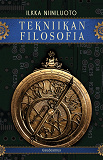
Tekniikan filosofia
Tekniikka on läsnä kaikkialla ja säätelee vahvasti kulttuurin ja yhteiskunnan kehitystä. Mutta auttaako tekniikka ihmiskuntaa kukoistamaan, vai ajaako se maapallon kohti tuhoa? Mik ...
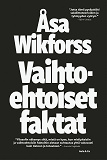
Vaihtoehtoiset faktat
Onko olemassa vaihtoehtoisia faktoja? Voiko jokin olla totta minulle mutta ei sinulle, vai onko totuus jotain objektiivista? Vaihtoehtoiset faktat esittää selkeästi, mitä tieto on ...
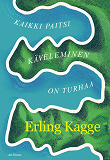
Kaikki paitsi käveleminen on turhaa
Homo sapiens on aina kävellyt.Käveleminen on välttämätöntä, käveleminen on terveellistä. Kävellen voi päästä vuorille, jäätiköille tai omaan sisimpään. Käveleminen on meditaatiota, ...
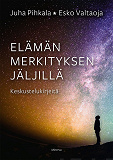
Elämän merkityksen jäljillä
Kaksi erilaisesta maailmankatsomuksesta nousevaa vaikuttajaa, emeritukset piispa ja tähtitieteen professori, ryhtyvät jälleen kymmenosaiseen kirjeenvaihtoon.Valtaoja ja Pihkala alo ...
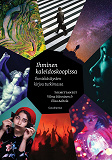
Ihminen kaleidoskoopissa
Mitä kaikkea ihminen on?Erilaiset elämäntilanteet nojaavat eri ihmiskäsityksiin: lääkärin vastaanotolla olemme biologisia kokonaisuuksia, pankin konttorissa taas rationaalisia hyöd ...
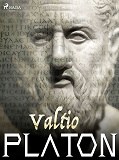
Valtio
Millainen on täydellinen ja oikeudenmukainen ihannevaltio? Tähän kysymykseen Platon pyrki vastaamaan perinpohjaisessa dialogissaan Valtio, joka yhdistelee poliittista filosofiaa, e ...
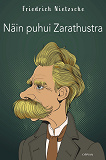
Näin puhui Zarathustra
Näin puhui Zarathustra on Friedrich Nietzschen tunnetuin ja tärkein teos, jossa suuren saksalaisen filosofin ajatukset tiivistyvät kaikkein kirkkaimpaan muotoonsa. Tästä kirjasta l ...
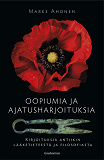
Oopiumia ja ajatusharjoituksia
Antiikin lääketieteessä on paljon meille vierasta mutta myös paljon meille tuttua. Yskä ja vatsakipu olivat antiikin arkipäivää, melankolia painoi mielen matalaksi ja univaikeudet ...

Antikristus
Antikristus-kirjassa Friedrich Nietzschen ampuu täysilaidallisen kohti kristinuskoa ja sen vaikutusta yhteiskuntaan. ”Kristillisellä moraalilla ja kristinuskolla ei ole yhtään kosk ...
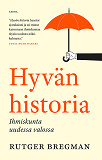
Hyvän historia
Hyvä. Parempi. Ihminen.Ihminen on luonnostaan itsekäs ja ihmiskunta tavoittelee vain omaa etuaan. Tätä ajatusta toistavat niin historioitsijat, psykologit ja filosofit kuin iltapäi ...
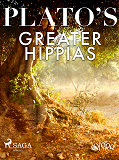
Plato’s Greater Hippias
Hippias of Elis travels throughout the Greek world practicing and teaching the art of making beautiful speeches. On a rare visit to Athens, he meets Socrates who questions him abou ...
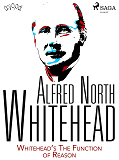
Whitehead’s The Function of Reason
Whitehead presented these three lectures at Princeton University in 1929. Although 85 years have passed, his central thesis and his analysis remain remarkably current. The scientif ...
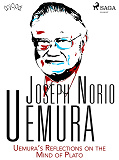
Uemura’s Reflections on the Mind of Plato
“Plato was not a Platonist! I would like to show . . . that anyone who reads the dialogues of Plato without bias or an ax to grind will find a humorous, witty, pleasant friend; and ...
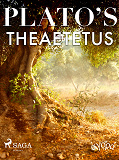
Plato’s Theaetetus
Perception, memory, truth, and knowledge all play major roles in this dialogue. What is remarkable about Plato’s treatment of those ideas is how contemporary are both the questions ...
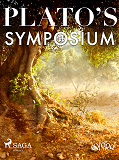
Plato’s Symposium
The dramatic nature of Plato’s dialogues is delightfully evident in the "Symposium." The marriage between character and thought bursts forth as the guests gather at Agathon’s house ...
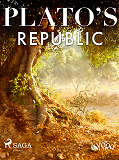
Plato’s Republic
The "Republic" poses questions that endure: What is justice? What form of community fosters the best possible life for human beings? What is the nature and destiny of the soul? Wha ...
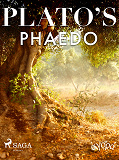
Plato’s Phaedo
Socrates is in prison, sentenced to die when the sun sets. In this final conversation, he asks what will become of him once he drinks the poison prescribed for his execution. Socra ...
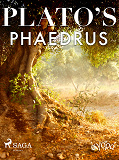
Plato’s Phaedrus
Plato’s dialogues frequently cover several topics and show their connection to each other. The "Phaedrus" is a model of that skill because of its seamless progression from examples ...
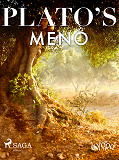
Plato’s Meno
A dialogue between Socrates and Meno probes the subject of ethics. Can goodness be taught? If it can, then we should be able to find teachers capable of instructing others about wh ...
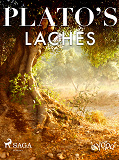
Plato’s Laches
Laches, a general in the Athenian army, saw Socrates fight bravely in the battle of Delium. When he and Nicias, another general, are asked to explain the idea of courage, they are ...
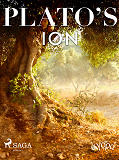
Plato’s Ion
Socrates questions Ion, an actor who just won a major prize, about his ability to interpret the epic poetry of Homer. How does an actor, a poet, or any other artist create? Is it b ...
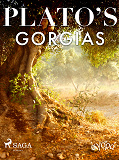
Plato’s Gorgias
Gorgias of Leontini, a famous teacher of rhetoric, has come to Athens to recruit students, promising to teach them how to become leaders in politics and business. A group has gathe ...
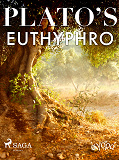
Plato’s Euthyphro
In Euthyphro, Socrates is on his way to the court where he must defend himself against serious charges brought by religious and political authorities. On the way, he meets Euthyphr ...
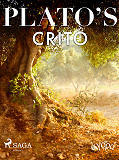
Plato’s Crito
After Socrates is sentenced to death by the Athenian court, his friend Crito comes to the prison to help him escape and go to another country. Socrates responds by saying that he w ...
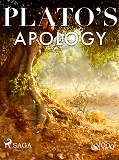
Plato’s Apology
Socrates is on trial for his life. He is charged with impiety and corrupting young people. He presents his own defense, explaining why he has devoted his life to challenging the mo ...
